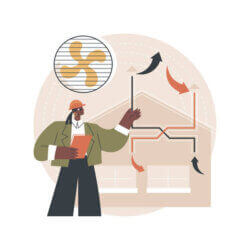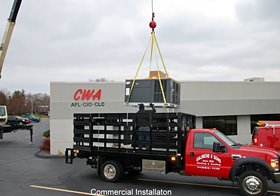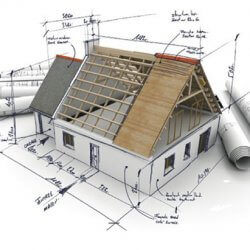Is your air conditioner not working as it should? Or are you noticing that it has been having trouble starting up? In this article, we explain in depth one of the most common problems owners will experience with air conditioners – the AC hard start.
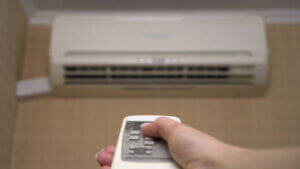
Read on to learn more about what causes AC hard starting and what you can do about it. If you are experiencing problems with your air conditioner in St. Louis and the surrounding areas, contact the experts at Galmiche & Sons today to schedule your AC service appointment and learn more.
AC Hard Start – What Is It?
An AC hard start is any situation where you your air conditioner struggles to switch on or does not get switched on properly. This can also include if it does switch on, but the AC does not remain functional and switches off soon after. It may even take a few tries to get the AC to start working again and even then, you may notice that the cooling seems weak.
Reasons Why Your AC May Hard Start
AC hard starting can occur due to two main reasons:
- A damaged/failed capacitor: The capacitor is a cylindrical component that is designed to help provide the AC with enough power for the AC to start up and stay on until switched off. It controls the operation of the AC motors, aiding in the starting and stopping of the AC. Sometimes, the capacitor can become worn out because of years of use and it ultimately doesn’t work. Other times, voltage fluctuations can damage the capacitor, affecting its functioning. An overheated capacitor – which is common when the AC is on for long durations – can also lead to hard starting.
- Problems with electrical wiring: Even if your capacitor is fine, any issues with your building’s electrical wiring can result in an AC hard start. The damage in the electrical wiring can prevent the proper flow of current to the AC, resulting in faulty AC functioning. Usually, we notice electrical wiring issues due to bad weather or the AC wires being chewed and damaged by pests.
Signs of an AC Hard Start
The following are some common signs of a hard start that you should look out for when you switch on your air conditioner:
- Your AC makes loud clicking or popping sounds when you try to switch it on.
- You notice that your AC short cycles – where the cooling down period gets progressively shorter and results in the compressor switching on and off rapidly.
- Your circuit breaker trips because of the short cycling or overload when the AC tries to turn on.
- You notice that your light flickers or your voltage is too low every time the AC switches on.
Is AC Hard Starting Bad for Your Air Conditioner?
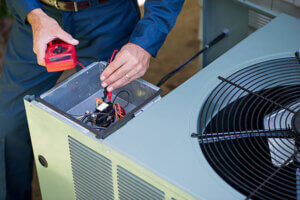
Yes, a hard-starting air conditioner is a bad sign. First off, when an AC hard starts, it consumes a lot of electricity, as it tries to switch on and stay on. This can result in expensive electric bills each month.
Second, your air conditioner itself may start to break down faster and become unsalvageable. A hard start is in itself an indication that something is wrong with an AC component. So, you may need to invest in a lot of repairs or even replace the AC altogether.
Can I Do a DIY Fix for AC Hard Starting?
If your AC is experiencing a hard start, it recommended that you do not attempt to do any DIY fixes. This is mainly because of two reasons:
- Most home/office owners are untrained in fixing or replacing the AC capacitor. You may end up doing more harm than good to your AC.
- Since AC hard starting can occur due to electrical wiring problems, there is always a safety hazard when you are untrained in HVAC repairs.
As such, if you suspect any signs of AC hard start, calling an experienced local HVAC contractor is the smartest thing to do.
How Galmiche & Sons AC Experts Can Help
At Galmiche & Sons, we have installed and repaired thousands of ACs in homes across St. Louis. We have tremendous experience in fixing AC hard starting as well as providing replacement if needed. Reach out to our team today if you notice any signs of hard starting.



